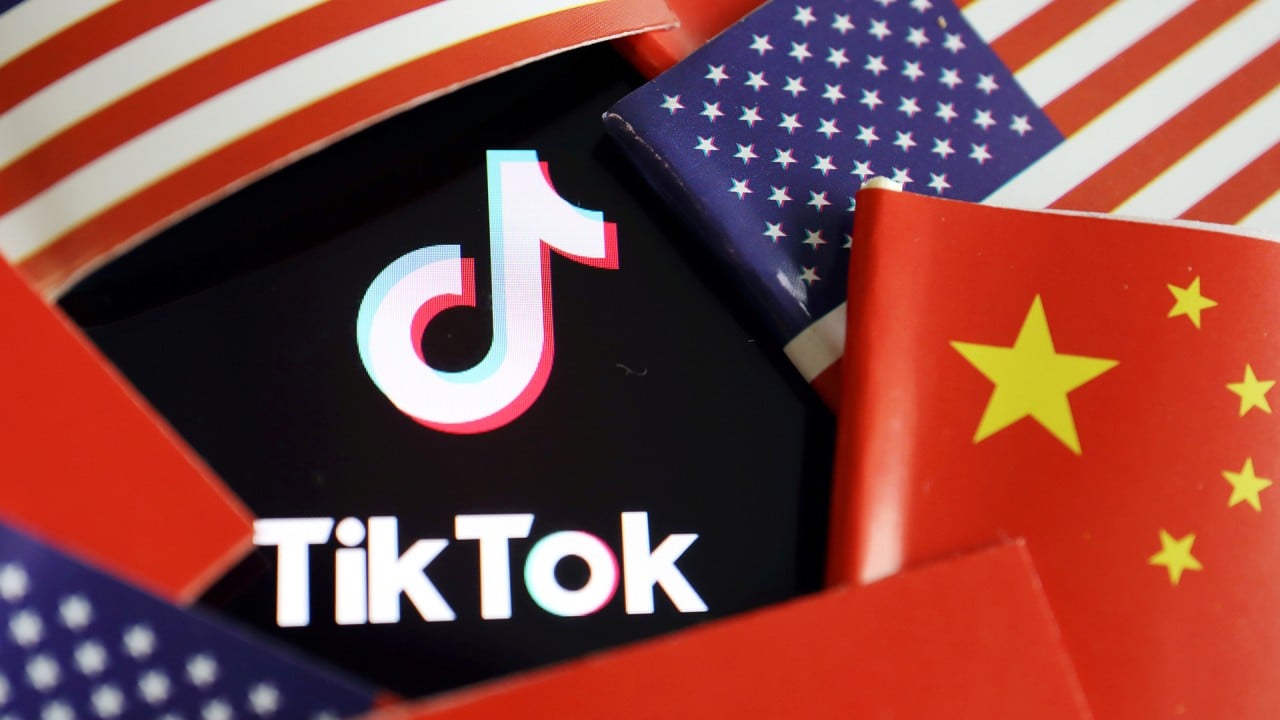
US government asks American college endowments to sell Chinese stocks, warning of ‘wholesale delisting’
- US State Department warns Chinese firms could face ‘wholesale delisting’ in letter to universities
- College endowments, mutual funds increased Chinese holdings in past year to track changes of A-share weightings in global indices
The US State Department has asked American colleges and universities to divest their holdings of Chinese companies from their more than US$600 billion in endowments, the latest move by the Trump administration to discourage pension funds and other American investment funds from buying stocks and bonds of firms from the mainland.
The agency warned in a letter on Tuesday that Chinese companies could face a “wholesale delisting” from American bourses by the end of next year under new rules recommended by a group of top US regulators, and it would be “prudent” for university endowments to exit their holdings in Chinese firms.
“The boards of your institution’s endowment funds have a moral obligation, and perhaps even a fiduciary duty, to ensure that your institution has clean investments and clean endowment funds,” Keith Krach, undersecretary for economic growth, energy and the environment, wrote in the letter seen by the South China Morning Post. “I also ask that you strongly consider publicly disclosing to your campus communities immediately all [People’s Republic of China] companies that your endowment funds are invested in, especially the PRC companies in emerging markets index funds.”
“Holding these stocks also runs the high risks associated with PRC companies having to restate financials,” Krach, the former chairman of Purdue University’s board of trustees.

06:35
US demands for TikTok may escalate decoupling and hurt businesses, says China expert
Bloomberg first reported the contents of the letter on Wednesday.
China’s Foreign Ministry on Wednesday said the US and China remain important partners in investment and finance and any impediments would not be beneficial to the financial markets of either country. Zhao Lijian, the ministry’s spokesman, urged the Trump administration to foster a fair, non-discriminatory business environment for Chinese companies to operate and invest in the US during a regular press briefing.
The study included more than 700 institutions with combined endowment assets of US$630 billion.
Foreign stocks also played an outsize role in the investing strategy at some of the biggest university endowments in the US last year.
For example, Yale set aside 13.7 per cent of its assets in foreign equity, according to its June 2019 endowment report. Stanford Management Company, which oversees Stanford University’s merged pool of investments, allocated about 20 per cent of its assets to international equities in financial year 2019, according to it most recent financial report.
Stanford University’s US$46.4 billion endowment is exposed to China through the Trustbridge Partners III, which has investments in nine closely held Chinese companies, including Dianping.com, according to data from Bloomberg.
The President and Fellows of Harvard College, one of Harvard University’s governing boards with US$59.3 billion of assets under management, is exposed to 23 Chinese companies through investments in funds offered by SAIF Partners, whose portfolio includes shares in China Huiyuan Juice Group, the country’s largest fruit juice bottler, according to data from Bloomberg.
The Trustees of Princeton University, a US$32 billion endowment, owns 290,000 shares of Finvolution Group, a Shanghai-based consumer finance company. It also has indirect exposure to 115 Chinese companies through investing in the funds offered by Qiming Venture Partners, SAIF Partners, Sierra Ventures and Redpoint Ventures, according to Bloomberg data.
The US$30.3 billion Yale University Endowment Fund invests in Hillhouse Capital Private Equity Fund II, which has investments in 15 Chinese start-ups, such as Beijing Yidongfenxiang Technology, and listed companies such as search engine provider Baidu, according to data from Bloomberg.
The managers for endowments at Harvard, Yale and the University of Texas and Texas A&M system also reported holdings in exchange traded funds (ETFs) that include shares of prominent Chinese companies, such as Alibaba Group Holding, Tencent Holdings and JD.com, according to regulatory filings. Alibaba is the parent company of the Post.
Managers of university endowments contacted by the Post on Wednesday did not respond or offer any comment.
At the same time, university endowments, retirement funds and mutual funds that track global indices have increased their holdings of Chinese companies in the past year to track a shift as index providers, such as MSCI, increased their weighting of A shares.
For example, MSCI quadrupled its weighting of A shares in key benchmarks last year from 5 per cent to 20 per cent last year, drawing the ire of some US politicians. As a result of the inclusion of more large- and mid-cap stocks, the A-share weighting in the MSCI Emerging Markets Index rose to 4.1 per cent from 0.7 per cent
Zhen Wei, MSCI’s head of Asia-Pacific index solutions research, said last month that the index provider is “closely monitoring” the US rumblings, but said its classification framework is “purely based on objective and quantitative measures, such as size and liquidity, market accessibility”.
“If there’s any US law that prevents domestic investors investing in certain geographic areas, that would be restrictive to capital flows for US investors, [and] that may potentially affect Hong Kong, and its investor community,” Wei said during a teleconference in July.
According to data released by the People’s Bank of China this month, foreign holdings of Chinese equities rose 19 per cent to 2.1 trillion yuan (US$303 billion) in 2019, up from 1.77 trillion yuan in the prior year period.
The latest decree by the State Department comes as tensions between the world’s two biggest economies are more strained than they have been in decades on issues including trade, technology and Hong Kong’s autonomy.
In May, US President Donald Trump and the US Labor Department directed the Federal Retirement Thrift Investment Board, which oversees hundreds of billions of dollars in government pension money, not to invest in Chinese companies. The board was planning to shift about US$50 billion to track an MSCI index that includes mainland firms, but abandoned the plan on May 13.
Tony Jiang, co-founder and partner of China-focused private equity firm Ocean Link, said a decoupling of financial markets in the US and China “won't take place easily”.
“Political tension comes and goes,” Jiang said at the Mergermarket Asian M&A Forum on Wednesday. “Fundamentally what drives peoples’ decision between different listing venues still resides within the evolution of the regulatory regime and framework.”



